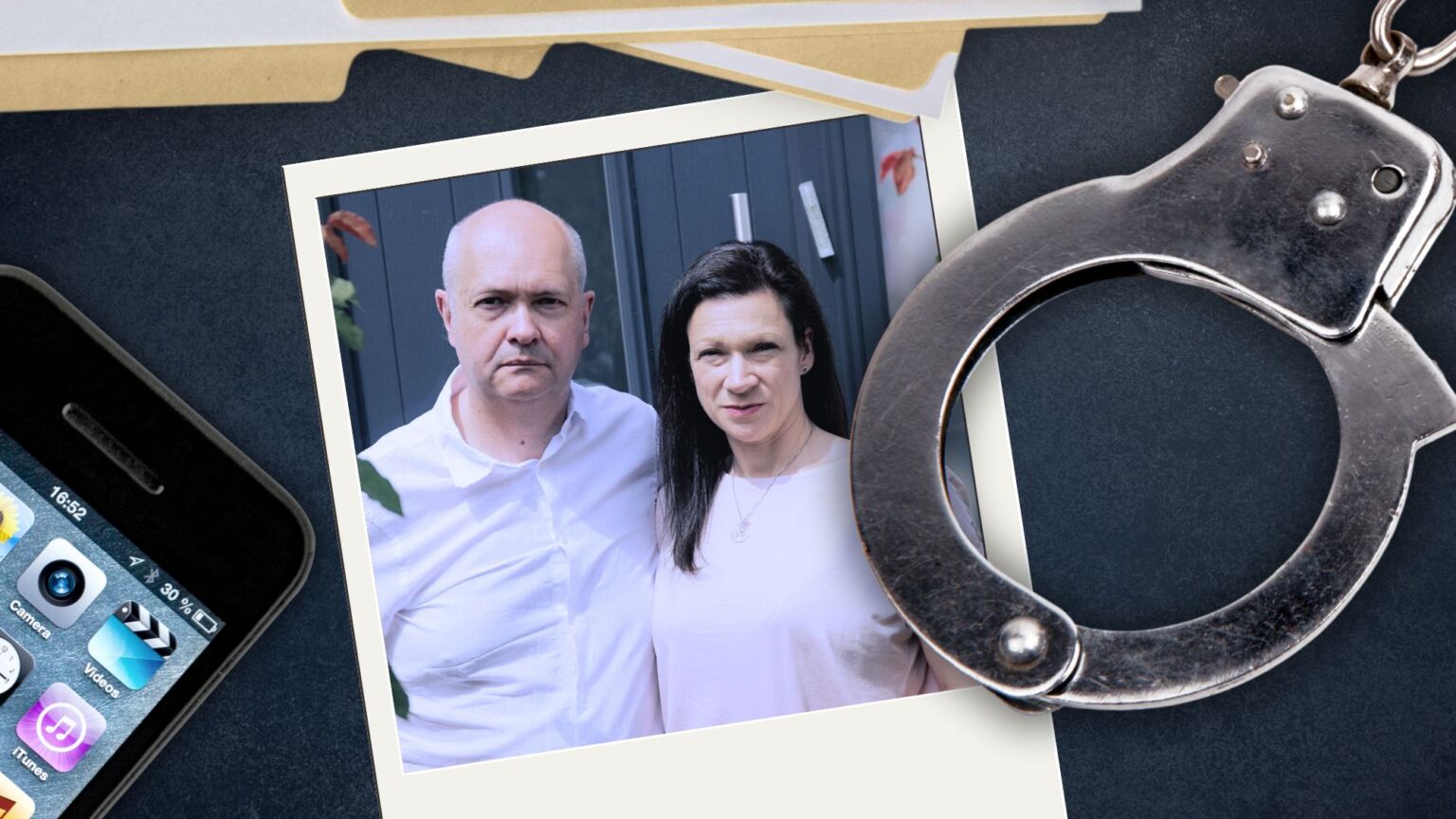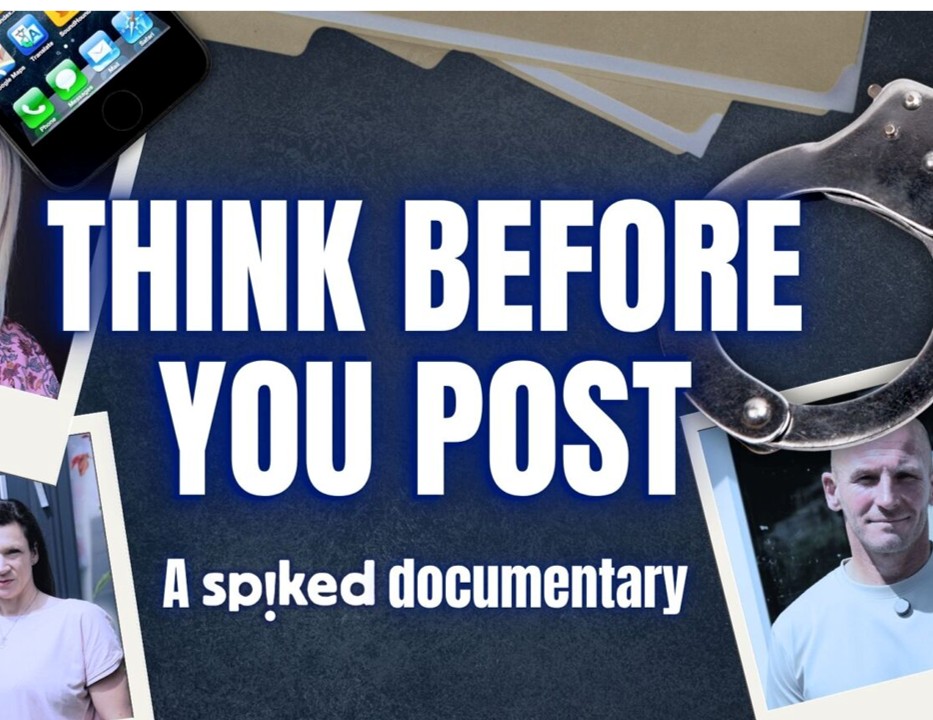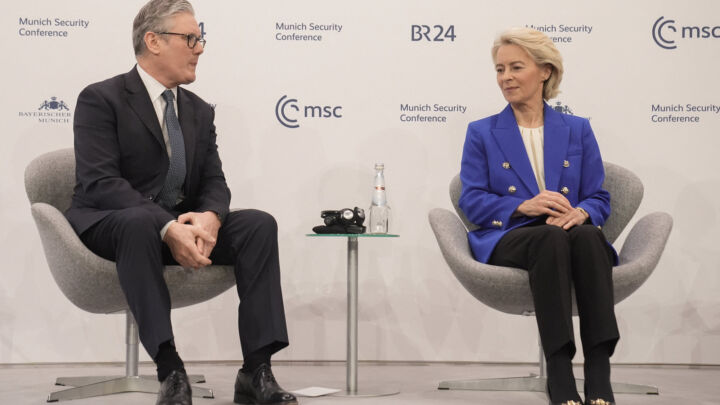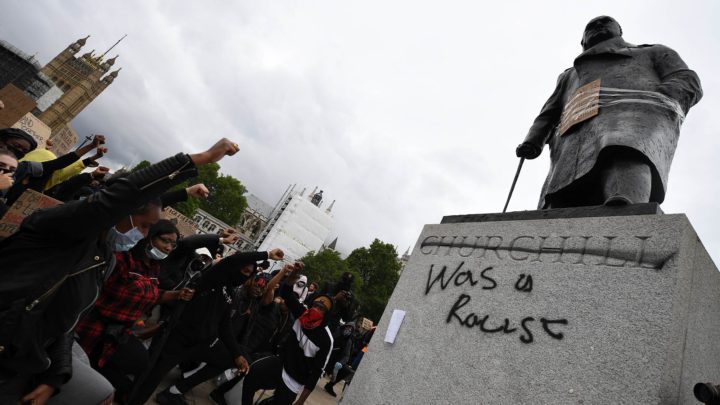The Borehamwood WhatsApp farce shames the speech police
The cops have finally admitted that their arrest of a couple for criticising their child’s school was unlawful.

Want unlimited, ad-free access? Become a spiked supporter.
Britain’s WhatsApping parents can sleep a little easier in their beds. Remember the Borehamwood couple, Maxie Allen and Rosalind Levine, arrested in January after they had complained about their daughter’s primary school on a parents’ WhatsApp group? Well, Hertfordshire Constabulary have now conceded that the arrest, at the hands of six of their officers, was unlawful. Better late than never, I suppose.
I’ve got to know Maxie and Rosalind a bit recently. Their story forms one of the shocking case studies in our new documentary, Think Before You Post – about the national embarrassment that is British police officers routinely arresting and harassing law-abiding members of the public for posting supposedly ‘offensive’ things online. As Maxie puts it in the doc, about his experience of being carted away in a police car for ‘malicious communications’, ‘to describe it as Kafkaesque is a massive understatement’.
They were arrested. Rosalind had to beg the officers not to handcuff her in front of their three-year-old. Their devices were seized. They were held in a cell for eight hours. They waited five long weeks before Hertfordshire plod told them there would be no further action. All because they were engaged in a protracted, largely online row with the local Cowley Hill Primary School, over its appointment of a new headteacher.
This fits a disturbing pattern, whereby police have become the rent-a-goons of the thin-skinned and easily offended – be that an activist with an axe to grind or a school that doesn’t want to deal with pesky parents’ criticisms. Hertfordshire Constabulary say they stand by their decision to investigate, while conceding the criteria for arrest were not made out – thus ‘rendering the arrest unlawful’. They’ve agreed to a £20,000 payout. But it is, if you’ll excuse the legal jargon, absolutely crackers that this was ever a police matter to begin with.
Cowley Hill told spiked it only ‘sought advice from the police following a high volume of direct correspondence and public social-media posts from two parents, as this was becoming upsetting for staff, parents and governors’. But when we asked the school to produce any examples of these apparently terrifying, potentially criminal missives, they declined. The spiciest messages Maxie and Rosalind can recall is Rosalind calling the acting head a ‘control freak’, which, if anything, seems mild given what happened next.
Maxie and Rosalind’s case sparked national – even international – attention. The Free Speech Union valiantly fought their corner. But as the couple say in the documentary, just think about all the cases we don’t hear about. They were arrested on suspicion of sending ‘malicious communications’ (as well as harassment and causing a nuisance on school property). At least 30 people a day are now arrested for this, according to a recent Times investigation. That’s 12,000 a year. On these numbers alone, Britain is comfortably arresting more people for speech crime today than America did during the First Red Scare.

Premiere screening of ‘Think Before You Post’ with Q&A
7PM, TUESDAY 25 NOVEMBER
London
£23 general admission / £18 spiked supporters
It’s often tempting to lay the blame for the rise of speech-policing on the law – to insist that beleaguered bobbies are simply doing as statute demands. But the Borehamwood farce shows the cops are often a big part of the problem, zealously pursuing these ‘crimes’, only to realise there is insufficient evidence to proceed any further. That same Times investigation found that while arrests for ‘malicious communications’ are up a whopping 58 per cent since the pandemic, the number that make it to the point of a conviction or a sentencing has ‘dramatically decreased’ since 2015.
It’s hard to take much comfort from this, though – that the lion’s share of these wrong-thinkers are only being arrested, rather than found guilty. It’s alarming that this even needs to be said, but it’s not nothing to be arrested. To be made out to look like some drug kingpin in front of your neighbours. The process is the punishment. There’s the uncertainty and anxiety and unearned shame it inflicts on totally innocent people. This is why we made the film, to tell the human stories behind the headlines. And then there’s the shadow it casts over everyone else in society, who now feel compelled – to coin a phrase – to think before they post.
So congratulations to Maxie and Rosalind. They stuck up for themselves, fought back and won. But they – and thousands more like them – should never have been put in this position to begin with. Police across the country have been carrying on like a cross between the Stasi and Keystone Cops. Perhaps a few more painful payouts will convince them to wind their necks in.
Don’t miss the premiere of Think Before You Post, on Tuesday 25 November in London. The screening will be at 7pm, followed by a live Q&A with Allison Pearson, Jamie Michael and Tom Slater. Get your tickets now!
Tom Slater is editor of spiked. Follow him on X: @Tom_Slater_
Support spiked and get unlimited access
spiked is funded by readers like you. Only 0.1% of regular readers currently support us. If just 1% did, we could grow our team and step up the fight for free speech and democracy.
Become a spiked supporter and enjoy unlimited, ad-free access, bonus content and exclusive events – while helping to keep independent journalism alive.
Monthly support makes the biggest difference. Thank you.












Comments
Want to join the conversation?
Only spiked supporters and patrons, who donate regularly to us, can comment on our articles.